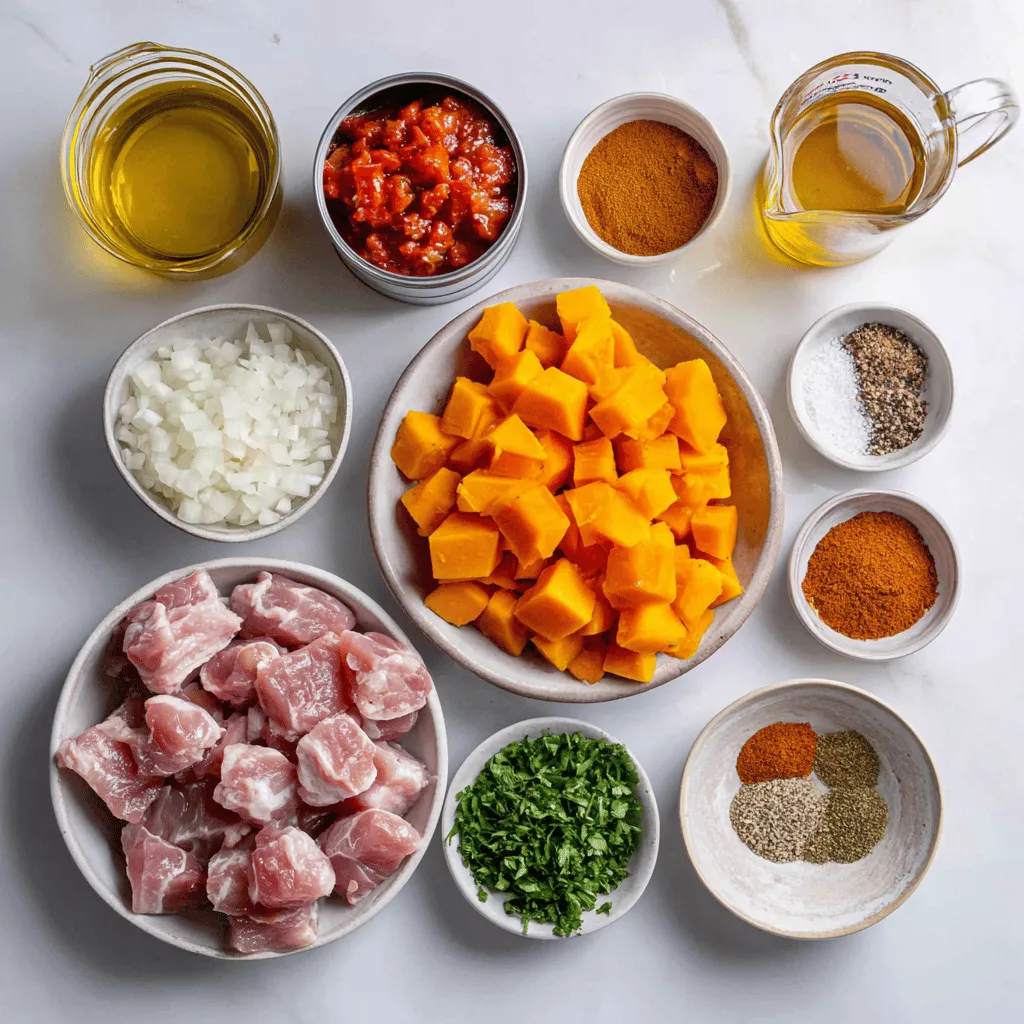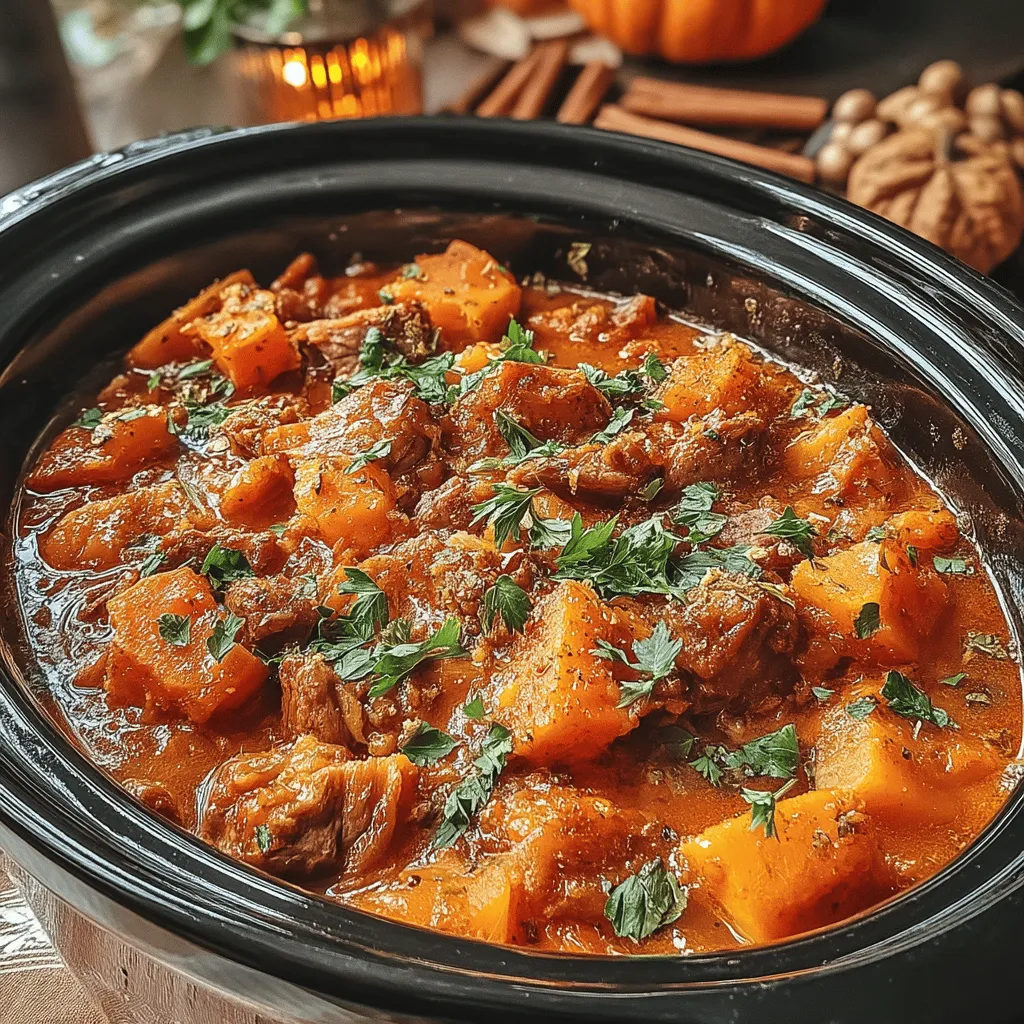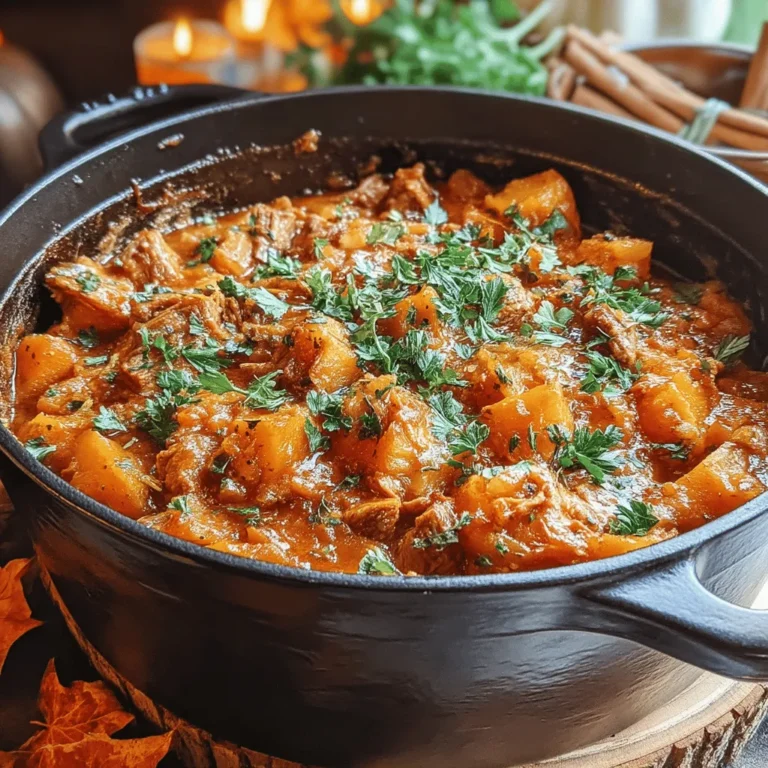Introduction
Autumn is a time of warmth, comfort, and heartwarming meals that bring family and friends together. One dish that embodies the essence of the season is the Autumn-Spiced Pork and Butternut Casserole. This recipe harmonizes tender pork shoulder with the sweet, nutty flavor of butternut squash, complemented by a medley of warming spices. In this article, we will explore the ingredients, the step-by-step cooking process, and the delightful flavors that make this casserole a must-try for your autumn dining table.
As the leaves change color and a chill fills the air, this casserole becomes the perfect centerpiece for gatherings. The combination of savory pork and sweet butternut squash creates a comforting dish that is not only delicious but also nourishing. With its rich flavors and satisfying textures, this casserole is sure to become a family favorite.
Whether you are hosting a dinner party or simply enjoying a cozy night in, the Autumn-Spiced Pork and Butternut Casserole is a dish that celebrates the season. Let’s dive into the recipe and discover how to create this heartwarming meal.
Recipe Overview
– Total Time: 2 hours
– Servings: 6
– Difficulty: Medium
Ingredients
– 2 lbs pork shoulder, cut into chunks
– 1 medium butternut squash, peeled and diced
– 1 large onion, chopped
– 4 cloves garlic, minced
– 1 tsp ground cinnamon
– 1 tsp ground nutmeg
– 1 tsp ground cumin
– 1 tsp smoked paprika
– ¼ tsp cayenne pepper
– 1 can (14.5 oz) diced tomatoes, drained
– 2 cups chicken or vegetable broth
– Salt and pepper to taste
– 2 tbsp olive oil
– Fresh parsley, for garnish (optional)

Instructions
1. Preheat your oven to 350°F (175°C).
2. In a large skillet, heat the olive oil over medium-high heat.
3. Season the pork shoulder chunks with salt and pepper.
4. Sear the pork in the skillet until browned on all sides, about 5-7 minutes.
5. Remove the pork from the skillet and set aside.
6. In the same skillet, add the chopped onion and minced garlic, sautéing until the onion is translucent.
7. Stir in the diced butternut squash and cook for an additional 5 minutes.
8. Add the cinnamon, nutmeg, cumin, smoked paprika, and cayenne, stirring well to combine.
9. Return the seared pork to the skillet and add the drained diced tomatoes and broth.
10. Bring the mixture to a simmer, then transfer it to a large casserole dish.
11. Cover the dish with foil and bake in the preheated oven for 1.5 hours.
12. Remove the foil and bake for an additional 30 minutes, allowing the top to brown slightly.
13. Once done, let it rest for a few minutes before serving.
14. Garnish with fresh parsley, if desired, and enjoy!
Understanding the Ingredients
Exploring the Core Components of the Dish
Pork Shoulder: The Star Ingredient
– Description of pork shoulder cuts and their flavor profile
– Benefits of using pork shoulder for slow cooking
Butternut Squash: The Autumn Essential
– Nutritional benefits of butternut squash
– Preparation tips for peeling and dicing
Aromatics: Building Flavor with Onion and Garlic
– The importance of onions and garlic in enhancing flavor
– How they contribute to the dish’s aroma
The Spice Blend: An Autumn Symphony
– Overview of each spice: cinnamon, nutmeg, cumin, smoked paprika, and cayenne
– How these spices create a warm, comforting flavor profile
Tomatoes and Broth: Adding Depth and Moisture
– The role of diced tomatoes and broth in the casserole
– Options for broth: chicken vs. vegetable

Sautéing the Aromatics: Enhancing the Flavor Base
Techniques for Ensuring Onions are Perfectly Translucent
Achieving perfectly translucent onions is crucial for building a rich flavor base in your casserole. Start by slicing the onions uniformly to ensure even cooking. Use a medium heat setting to allow the onions to soften gradually without browning. Stir them frequently and add a pinch of salt to draw out moisture, which aids in the cooking process. Aim for a cooking time of about 5 to 7 minutes until the onions become soft and glossy.
How to Time the Addition of Garlic for Optimal Flavor
Garlic adds a robust flavor to your dish, but timing is key. Add minced garlic to the pan after the onions have reached a translucent state. Sauté the garlic for just 30 seconds to 1 minute, stirring constantly. This prevents the garlic from burning and becoming bitter, ensuring it complements the onions perfectly.
Toasting the Spices: Unlocking Their Full Potential
Explanation of Why Toasting Spices is Essential
Toasting spices before adding them to your casserole activates their essential oils, enhancing their flavor profile. This step transforms the spices, bringing out deeper, more complex flavors that elevate your dish.
Signs That Spices are Perfectly Toasted
Look for a change in color and a fragrant aroma as indicators that your spices are toasted. They should become slightly darker and emit a warm, inviting scent. This process typically takes about 2 to 3 minutes over medium heat, so keep a close eye to prevent burning.
Combining Ingredients: Building the Casserole
Step-by-Step Guide on Incorporating All Ingredients into the Pot
Once your aromatics and spices are ready, it’s time to build your casserole. Begin by adding the sautéed onions and garlic to your meat mixture. Next, incorporate the butternut squash and any other vegetables you desire. Pour in your choice of broth or sauce, ensuring all ingredients are well combined. Stir gently to incorporate flavors thoroughly before moving to the next step.
Baking to Perfection: The Final Stage
Importance of Simmering Before Transferring to the Oven
Simmering your mixture on the stovetop for about 10 minutes before transferring to the oven allows the flavors to meld beautifully. This step ensures that all the ingredients are heated through and begin to break down, creating a cohesive dish.
Adjusting Cooking Time Based on Oven Variations
Every oven is different, so it’s essential to keep an eye on your casserole as it bakes. Generally, a baking time of 45-60 minutes at 350°F should suffice. Check periodically for doneness, especially if your oven runs hot or cool. A good indicator is the tenderness of the butternut squash and the caramelization of the pork.
Serving Suggestions and Pairings
Ideal Accompaniments for the Casserole
To enhance your casserole experience, consider serving it alongside crusty bread or a fresh green salad. The combination of textures and flavors will elevate the meal, making it even more satisfying. A side of sautéed greens, such as spinach or kale, can also provide a nutritious balance to your dish.
Garnishing for Presentation
A sprinkle of fresh parsley not only adds a pop of color but also brightens the overall flavor profile of your casserole. Other garnishing options include a drizzle of balsamic reduction or a scattering of pomegranate seeds for a touch of sweetness and visual appeal.
Nutritional Information
Overview of the Nutritional Profile of the Casserole
This Autumn-Spiced Pork and Butternut Casserole is not only delicious but also packed with nutrients. A typical serving contains approximately 400 calories, with a balanced mix of protein from the pork and vitamins from the vegetables.
Health Benefits of the Ingredients
Each ingredient in this casserole contributes to a healthy diet. Pork is a great source of lean protein, while butternut squash is rich in vitamins A and C. The spices used, such as cinnamon and nutmeg, offer anti-inflammatory properties and antioxidants, making this dish as nutritious as it is comforting.
Conclusion: The Comfort of Home-Cooked Meals
The Autumn-Spiced Pork and Butternut Casserole is more than just a recipe; it is an experience that brings the flavors of autumn to your kitchen and warms the hearts of those who gather around the table. With its rich, comforting flavors and the nutritional benefits of its wholesome ingredients, this dish is perfect for family dinners or cozy gatherings. Embracing the essence of the season, this casserole invites you to savor the joys of home-cooked meals and create lasting memories with loved ones.

